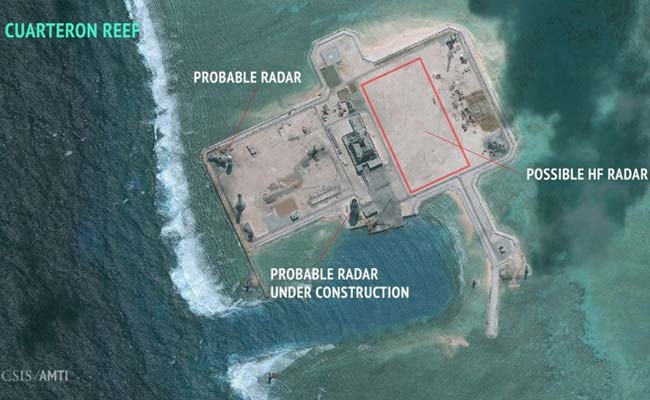 |
| China claims most of the South China Sea while Vietnam, Malaysia, Brunei, the Philippines and Taiwan have rival claims. |
The United States needs India to ensure security in the Asia- Pacific, Admiral Harry Harris, Chief US Pacific Command, told a gathering in New Delhi.
"We need you I'm clear eyed - and perhaps a bit moonstruck - by the opportunities a strategic partnership with India presents," the Admiral said at the Observer Research Foundation, inviting India to be part of a four-nation group along with Australia, Japan and the US to police the disputed waters of South China Sea.
China and six countries have overlapping claims to the East and South China Seas, rich in hydrocarbons and natural gas. Besides, global trade worth $5.3 trillion flows through these disputed waters annually.
The US wants to curb China's attempts at asserting its sovereignty in the South China Sea, where Bejing has been building air strips, lighthouses, a possible radar system and ports on an island.

A satellite image shows construction of possible radar tower facilities in the Spratly Islands in the disputed South China Sea.
"A free sea for everyone" remains the "fundamental right of all nations," Admiral Harris said, adding that some "countries seek to bully smaller countries through intimidation and coercion".
India, like several other nations, has insisted on navigational freedom through the South China Sea, but has so far stayed away from multi-lateral groupings - reminiscent of the World War era. It has sought to pursue its national interest through bilateral exchanges rather than through such groups.
Trying to break down India's reluctance, the US admiral pushed for "a quadilateral security dialogue between India-Japan-Australia and the United States."
Adding the US to such a dialogue can amplify the message that "India and US are together for an international rules-based system," Admiral Harris said.
As India under Prime Minister Narendra Modi executes an "Act East Policy," he said, the United States is also changing its focus "to the Indo-Asia- Pacific.
"Chalein saath saath," the Admiral said in Hindi, also translating, "Forward, together we go."




0 komentar:
Post a Comment